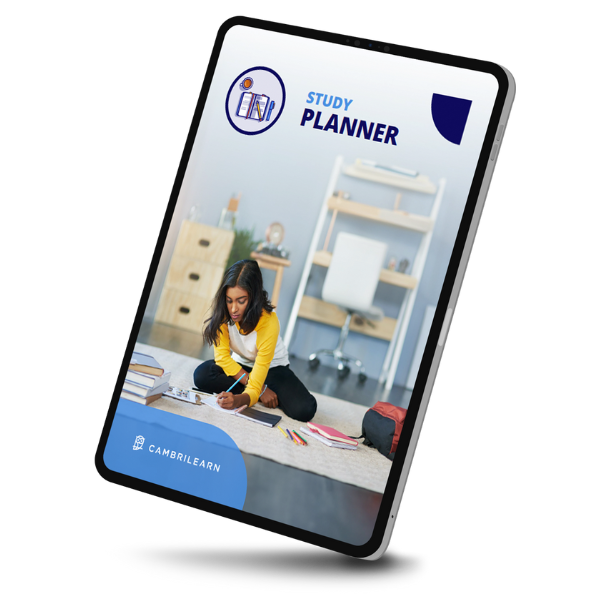Key Takeaways
- Mastering study skills promotes academic success by fostering independence, motivation, and effective engagement with material.
- Effective time management strategies, including the Pomodoro Technique and adaptability, are essential for balancing academic responsibilities and personal life.
- Utilising active reading techniques, memory enhancement methods, and collaborative study groups significantly improves retention and understanding of the material.
The Importance of Study Skills
Strong study skills are the backbone of academic success. They enable students to achieve good grades and prepare for future educational challenges. Developing effective study habits fosters independence, encouraging students to take charge of their learning journey. This sense of ownership can significantly boost motivation and retention, making the learning process more engaging and rewarding.
Moreover, mastering study skills enhances a student’s ability to engage with the material meaningfully. It supports the development of executive function skills, such as planning and decision-making, which are crucial for academic success and beyond. These learning skills help students process and retain information, manage their time effectively, and organise their learning. Students have learned how to apply these skills to improve their overall academic performance and learn new strategies in experimental psychology.
Understanding and implementing effective study strategies is an important part of every student’s academic journey. It goes beyond merely preparing for exams; it involves a comprehensive approach to learning that includes good time management, active engagement with the material, and continuous self-improvement. To truly understand effective study, students must adopt these strategies.
Effective Time Management
Balancing academic responsibilities with personal life can be challenging, but good time management skills make it possible. Here are some helpful strategies and more tips:
- Create a study timetable to organise preparation and ensure all topics are covered without last-minute cramming.
- Use tools like Trello to manage tasks.
- Set reminders to keep deadlines in check.
The Pomodoro Technique is a popular method among students, involving:
- Short, focused study sessions followed by brief breaks
- Helping maintain focus and preventing burnout
- Setting realistic and manageable goals to reduce anxiety and the tendency to procrastinate
- Dividing study sessions into shorter periods to maintain focus and productivity in a short time
Adaptability is key to effective time management. Being flexible with schedules allows for adjustments when unexpected events occur, ensuring that study goals remain achievable. This balance is crucial for maintaining both academic performance and personal well-being.
Active Reading Techniques
Active reading goes beyond merely skimming through text; it involves critically engaging with the material to assess its relevance and understanding. Highlighting key terms and making annotations in the margins can aid in identifying important points and short summaries of content. The SQ3R method: Survey, Question, Read, Recite, Review, is a well-known technique that enhances comprehension and retention.
Asking questions about the text, such as its authorship and intended audience, promotes critical thinking and a deeper understanding of the subject material. Engaging multiple senses during study sessions, like reading aloud or drawing diagrams, significantly enhances memory retention and research skills, especially when considering the question posed.
Mixing different study strategies like reading, writing, and discussing material can keep study sessions engaging and effective. Collaborative learning, where students discuss and tackle tasks together, leverages diverse perspectives and enhances problem-solving skills.
Note-Taking Strategies
Effective note-taking is crucial for retaining and understanding information. It enhances focus during lectures and helps in comprehending complex concepts. Taking notes can save time and reduce confusion during review sessions, making them an invaluable study tool.
Various methods, such as the Cornell style, outlines, and flowcharts, can structure class notes effectively. Post-class revisions are essential to clarify concepts and reinforce understanding. Using abbreviations and bullet points can make note-taking quicker and more efficient, allowing students to keep up with fast-paced lectures.
Converting lecture content into their own words helps students retain information more effectively and makes the data material more meaningful for teachers. This process of active engagement during note-taking is a powerful strategy for effective studying.
Memory Enhancement Methods
Memory enhancement techniques are essential for long-term retaining information. Some powerful tools include:
- Mnemonic devices
- Active recall
- Connecting new information to familiar concepts
- Using mnemonic systems to simplify memorisation by creating memorable associations.
The memory palace technique, which involves visualising a familiar spatial layout to recall unrelated items, is highly effective. Flashcards are another valuable tool for quick reviews and active recall, significantly aid memory retention. Practicing visualization techniques can also help in remembering large amounts of information, while rote memorization can be useful in certain contexts.
Test Preparation Tips
A systematic approach is essential for effective exam preparation, ensuring efficient study habits. Active self testing helps in identifying knowledge gaps and reinforces memory recall. Understanding exam questions keywords is crucial for effectively addressing exam prompts and ensures that answers are on point during the examination.
Practicing with past exam papers and practice tests is one of the most effective ways to enhance exam readiness. It familiarizes students with the format and types of questions they can expect, providing a valuable example of effective study techniques and an idea of effective study methods. Mind maps are also useful for visually representing information, making it easier to recall during exams.
Incorporating these strategies into study habits can lead to successful study sessions and improved academic performance for the student through positive reinforcement, creating a complete approach to learning ideas.
Creating a Productive Study Environment
Creating a productive study space is key to effective studying. Important factors include:
- A quiet area with minimal traffic to reduce distractions and enhance focus
- Turning off notifications to minimise interruptions
- Maintaining an organised workspace to reduce distractions
- Utilising natural light in the study area to improve focus and reduce eye strain while focusing on effective studying in a coffee shop.
Key factors that support effective studying include:
- Ergonomic furniture that supports good posture, aiding concentration during long study sessions.
- Personalising the study area with motivational items to create a positive atmosphere and make study time more enjoyable.
- Maintaining physical health through proper sleep and nutrition to sustain the energy needed for effective studying.
Creating a flexible schedule that incorporates both work and enjoyable activities, with proper spacing, can prevent feelings of overwhelm and maintain a balanced lifestyle.
Overcoming Procrastination
Understanding the psychology of procrastination can help individuals recognise and address their avoidance behaviors. Identifying personal motivations for completing tasks can foster a more productive mindset. Breaking larger tasks into smaller, manageable parts can help maintain momentum and reduce intimidation.
Effective strategies to combat procrastination include setting short deadlines and rewarding progress. These techniques can transform procrastination into a productive and manageable process.
Managing Exam Stress

Proper preparation and a well-organised study plan are key to alleviating test anxiety. Arriving early on exam day allows time to settle and prepare mentally, reducing stress. Maintaining a positive mindset can empower prepared students during exams, helping them perform their best.
Techniques like positive visualisation, where students imagine a successful exam experience, can reduce stress. Breathing exercises can also help calm the mind and body during exam anxiety, ensuring a more relaxed and focused state.
Utilising Study Groups

Study groups offer numerous benefits, including:
- Peer support and motivation
- Enhanced accountability and emotional reassurance through a collaborative environment
- Fostering social interaction, which helps individuals improve communication skills and build relationships.
Study groups encourage commitment from all participants, pushing quieter individuals to engage more actively in discussions. This collaborative nature can make learning more enjoyable and less tedious.
Adapting Study Skills for Different Grade Levels

Study skills need to evolve to support academic success at different grade levels:
- In primary or elementary school, the focus is on building foundational habits for long-term learning.
- Middle school students need to develop time management, self-discipline, and critical thinking skills with a growth mindset in math.
- Advanced strategies help middle schoolers stay on top of their academic responsibilities.
In high school, study skills must become more individualised and refined to meet specific academic needs. High school students develop effective study skills that equip them for challenging academic tasks. This preparation includes readiness for college entrance exams. The study skills cultivated during secondary school are crucial for success in higher education and future careers.
The Role of Technology in Studying
Technology plays a significant role in enhancing the learning experience. A majority of students believe that technology enhances their learning. A reliable internet connection is crucial for effective online studying and learning. Digital note-taking enhances the ability to edit and reorganise information for studying.
Online educational tools include:
- Online platforms like Coursera and CambriLearn, which provide flexible learning opportunities from recognised institutions.
- Mobile study applications like Quizlet and Anki, which create interactive study materials like flashcards and quizzes, serving as a valuable learning tool.
- Collaborative tools like Google Docs and video platforms like YouTube, which aid in educational content and visual learning.
AI tools, including Grammarly, provide immediate feedback on writing, aiding students in improving their academic work. Learning Management Systems streamline access to course materials and facilitate communication between students and the teacher.
Summary
In summary, mastering study skills involves effective time management, active reading, note-taking, memory enhancement, test preparation, creating a productive environment, overcoming procrastination, managing exam stress, utilising study groups, adapting skills for different grade levels, and leveraging technology. Implementing these strategies can transform your learning experience and pave the way for academic success. Remember, the journey of learning is continuous, and with the right tools, you can achieve your goals.
Frequently Asked Questions
What are the benefits of strong study skills?
Strong study skills lead to improved academic performance, enhanced independence, and increased motivation, equipping you to tackle future challenges effectively. Developing these skills can significantly benefit your educational journey.
How can I manage my study time effectively?
To manage your study time effectively, create a study timetable and utilise time management apps to stay organised. Incorporating techniques like the Pomodoro Technique can help you maintain focus and achieve a balance between your academic and personal life.
What are some effective note-taking strategies?
To enhance your note-taking, consider using the Cornell method, outlines, and flowcharts, alongside post-class revisions and the use of abbreviations and bullet points for clarity. Implementing these strategies can significantly improve your retention and organisation of information.
How can technology enhance my studying?
Technology can significantly enhance your studying by providing tools for digital note-taking, access to online learning platforms, mobile study apps, and collaborative features that facilitate teamwork. Utilising these resources can improve your efficiency and understanding of the material.
How can I overcome procrastination?
To overcome procrastination, break tasks into smaller, manageable parts and set short deadlines for each. Recognising your personal motivations and rewarding your progress will help maintain momentum.
.png)









